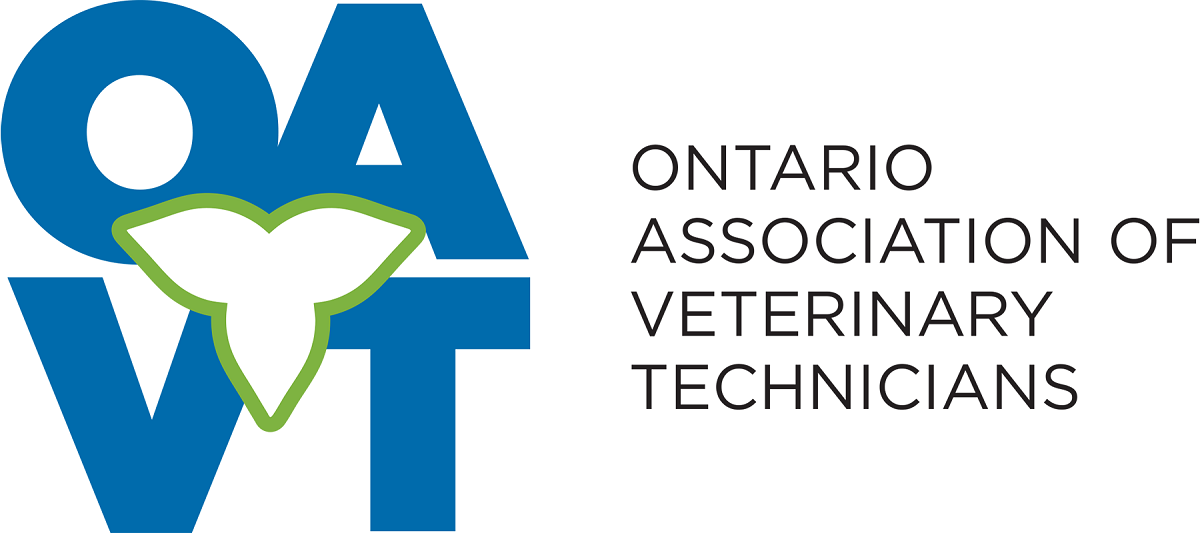ONgoing CE Opportunities
Ongoing CE Opportunities
The postings are categorized and sorted alphabetically for your convenience; they are not displayed in any order of priority or preference by OAVT. New postings are added regularly.
Table of Contents
College Programs/ Certificates/ Diplomas
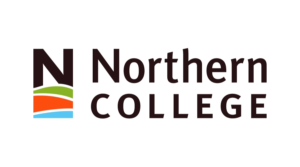
This program will teach students the importance of providing an appropriate environment for a wide range of animals in both short and long term rehabilitation situations from an ecological viewpoint. The program will give students a solid foundation on wildlife rehabilitation knowledge, diagnostic and nursing skills gained through practical experience. Graduates will be able to explore a wide range of career opportunities in both the private and public sectors, including employment in natural resources, zoos, and wildlife parks, avian rehabilitation centers, natural bird sanctuaries, orphanage programs and any small or large animal veterinary clinic that receives injured wild animals. Worth 20 CE credits upon completion of program.

A graduate one-year certificate program for RVTs in response to emerging animal health care needs. Worth 20 CE credits upon completion of program
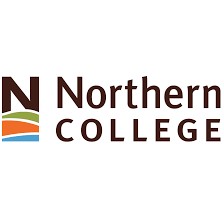
This micro-credential was designed by Dr. Ray Reynan (past President of the Ontario Association of Bovine Practitioners and Canadian Association of Bovine Practitioners) and Wayne Shewfelt (past President of Ontario Association of Bovine Practitioners) and former winner of the prestigious American Association of Bovine Practitioners Dairy Veterinary of the Year Award.
Successful candidates will be able to function independently and confidently as part of a veterinary service delivery team.
These micro-credentials are offered online with farm school assessments in Haileybury, Ontario or other locations. Micro-credentials are an ideal option for achieving badges of completion for professional development that can also be placed in LinkedIn accounts.
MICRO-CREDENTIALS ARE OFFERED AT YOUR OWN PACE, SEMESTER BASED, AND CONTINUOUS INTAKE
Modules include:
Stockmanship
Learn about herd and animal behavior, handle cattle with personal safety,and in a way that minimizes animal stress.
Dairy Industry
This module will introduce the structure of the supply management system for dairy production, including an introduction to how milk checks are calculated and managed by producers.
Life of a Diary Cow
Review the life cycle of a dairy cow from birth to herd removal. Particular focus on the impacts and assessment of the cow environment, from stall design to ventilation.
Udder Health/Milk Quality and Mastitis
Gain techniques to troubleshoot milk quality issues from the collection of farm data, cleanliness, and aseptic samples.
Reproduction/Manipulation of Cycles and Breeding
This unit explores the reproductive physiology of the modern dairy cow, including breeding synchronization protocols, use of computer software in tracking herd reproductive performance, and the role of technicians in both data entry and report preparation for dairy veterinarians.
Nutrition
This module explores shaker boxes, audits, evaluating feed samples, and reading a feed tag.
Transition Cow Management
Learn to use various computer software and monitoring programs in detection of transition cow disorders. Formally capture
herd data such as body condition scoring and BHB sampling to assist in in this capacity.
Dairy Software
Learn to run Dairycomp software. Prepare and interpret reports on milk production, reproduction, and health events.
Dairy Medications
Review basic protocols, reporting requirements, and safety procedures to administer treatments and vaccination programs at a herd level.
Health Management
Learn about common issues encountered in Canadian dairies, and the role of the technician in data collection, treatment, and monitoring for pathogens.
Hoof Health and Lameness
Develop skill in lameness evaluation and recording, as well as assessment of current farm hoof health protocols. Environmental and nutritional contributions will also be discussed.
Cost: $1895
To Register: NCMicro@northern.on.ca
Book a seminar/Lunch & Learn or in-person course
Online Opportunities
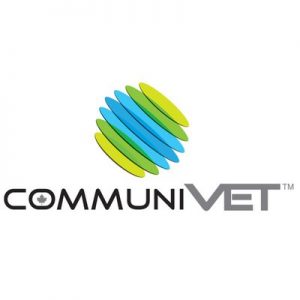
Managing castration complications in the field
Castration remains one of the most stressful procedures for many field veterinarians. Dr. Doyle takes us through how to deal with both major and minor complications of equine castration in the field in this one hour presentation.
Presented by Dr. Aimie Doyle
OAVT CE – 1 credit

Join us to review interesting cases that highlight the importance of obtaining objective lab data and its appropriate interpretation.
During this webcast, Dr. Holly Brown and Jessica Wilson-Hess discuss how many patients present with non-specific clinical signs, and how behavioural changes may or may not reflect underlying disease. Even with a thorough history and skilled physical exam, veterinary teams may be misled as to the underlying pathologic condition(s). However, by performing lab work and obtaining an objective minimum database from patients, they can make more accurate diagnoses and choose appropriate treatments.

Presenter: Daniel Harvey, CMDRT, RVT, AHT, LAT, N
Course Description: This course covers the basics of medical device reprocessing, i.e. cleaning, disinfection, decontamination, and sterilization of surgical instruments. The syllabus is composed of 26 chapters with discussion groups and a graded quiz for each chapter. The instructor will personally monitor the discussion groups daily, to ensure your learning.

Mental wellbeing at work: What you can do for yourself and your team
By midlife, approximately 50% of adults will have or have had a mental illness. Mental health is something that all individuals have and it exists on a continuum ranging from excelling to in crisis. Given the stressors that veterinary teams experience and their susceptibility to psychological distress, strategies for thriving mental health are necessary.
During this webcast, veterinary wellness advocate and Thrive! collaborator, Dr. Marie Holowaychuk will share her expertise and provide insight on the following elements:
• Statistics regarding mental health and psychological distress among veterinary team members.
• The mental health continuum and how to recognize mental health problems in yourself and other team members.
• Tools and tips for fostering mental health and wellbeing as an individual or leader in your workplace.
OAVT Credit: 1 CEC

CommuniVET now offers a new section dedicated to Registered veterinary technicians/technologists (RVT). In partnership with Zoetis, training in 4 modules will be done by CommuniVET exclusively for RVTs, in 2024, on monoclonal antibodies (mAbs). This first 30-minute module generally covers monoclonal antibodies (see details below). It is designed in an interactive form of images and texts on the screen with a voice-over, some short videos and integrated quiz questions.
To access Module 1, as of May 24, 2024, click on this link: https://360.articulate.com/review/content/e0fcb8bd-ad8a-4651-bae4-7c4fc6b3831b/review
Module 1: Become a Monoclonal antibody champion
By the end of this module, participants will:
• Understand the value of, and science behind, mAbs.
• Align on the need for, and benefit of, regular and consistent pet visits.
• See the important role RVTs in patient wellness.
• Be on their way to becoming a mAb champion.
To achieve these learning objectives, RVTs will learn about three main topics in this module.
• What are mAbs?
• How do they work?
• What are their benefits?
• Why should pet owners consider mAb therapy?
• How can I have an impact?

Presented by Darren Osborne, Dr. Anie Levesque, Dr. Bill Saxon and Dr. Jason Gagné. (This 120-minute webcast is available for on-demand streaming, via the web portal CommuniVET.com.) In this presentation, learn how marketing, senior wellness testing and nutrition combined can benefit your patients and clinic with four leading experts in the field. Accredited for 2 CE credits.
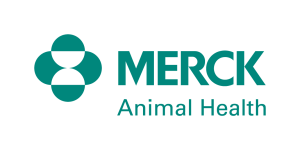
National Tick Awareness Month 2022: One Health, ticks and Lyme disease
As part of National Tick Awareness Month, Dr. Clow, Dr. Stevenson and Dr. Yabsley engage in an informative discussion about the concept of One Health and how veterinarians play an essential role in helping to protect, monitor and manage tick-borne diseases like Lyme disease in pets and people.
The recorded webinar will be available on-demand until March 2023. Participants must complete a series of 6 questions and answer successfully in order to get their CE certificate. OAVT members will earn 0.5 credits for successful completion of the quiz.
To watch the webinar: https://onlinexperiences.com/scripts/Server.nxp?LASCmd=AI:4;F:QS!10100&ShowUUID=0C907194-68A4-4BCE-AAFC-9B3BCCEAA1D6&LangLocaleID=1033

Presented by Dr. Janice Huntingford
Non-steroidal anti-inflammatory drugs (NSAIDs) are commonly used to treat osteoarthritis (OA) pain, inflammation, and stiffness. With recent advances in treatment, more options are available to provide affected pets with relief from symptoms and greater mobility, thereby improving their quality of life.
PART 1: NEW AND NOVEL TREATMENTS FOR DJD
Most veterinarians would agree that 80% of dogs over 8 years of age have osteoarthritis (OA) when, in fact, most OA is conformational in origin and is often preclinical in at-risk patients. In reality, over half of all dogs are not diagnosed with degenerative joint disease (DJD) until they are approaching end of life. Dr. Janice Huntingford will focus on early diagnosis of DJD, the importance of multimodal therapy, and some of the newer and novel treatments for DJD, including monoclonal antibodies, nutraceuticals, and rehabilitation.

Watch this webinar to learn about how you can future-proof your clinic’s small animal parasite protocols. In this session, parasitologist Prof. Christopher Fernandez-Prada will: Provide an overview of the new Canadian Parasitology Expert Panel (CPEP) guidelines; Highlight a few emerging parasitic threats, such as the Echinococcus tapeworm, that have been the focus of several recently published scientific studies; and Examine the importance of proper diagnosis and current prevention protocols for your patients.

Intestinal parasites have been detected by many different test methods over the years. Some outdated tests performed in‐house are not nearly as sensitive as newer techniques have been. PCR to identify DNA and RNA from parasites is a new modality that not only more effectively identifies the exact parasite present, it gives the clinician more information about the parasite, allowing for better management of the patient. This talk will review a new fecal PCR panel and highlight the benefits for the clinician and the patient of this next level of testing.
Link to watch on-demand version (available as of March 16, 2022): https://www.communivet.com/en/ca/education/webcasts/next-level-intestinal-parasite-detection

Presented by Dr. Ebenezer Satyaraj. Allergies to cats are the most common animal‐origin allergy, and affect about 1 in 5 adults worldwide. While cats produce several allergens, more 96% of people with sensitivities to cat respond to the primary cat allergen, Fel d1, a protein secreted in the saliva and sebaceous secretions of the cat. Allergen avoidance is the most effective solution; it however involves limiting interaction with the cat or in some cases relinquishing the cat. There is a need for innovative approaches to manage cat allergens. We will discuss the scientific basis of a novel approach to simply, safely and effectively neutralize Fel d, the most potent feline allergen, utilizing an anti‐Fel d1 IgY antibodies (derived from chicken egg) added to cat diet.

Nutritional management of osteoarthritis
Review of the role of nutrition in the management of patients with osteoarthritis: patient assessment, key nutritional factors and nutraceuticals.
OAVT CE Credit – 1

Nutritional support of dogs with cognitive disease
Sarah Wilson, BScH, DVM, Dipl. ACVIM (nutrition)
• Review of the role nutrition can play in dogs with cognitive disease
•Discussion of the nutrients shown to be beneficial in cognitive health as well as monitoring and feeding strategies that can help address the challenges that can be
experienced in these dogs.
OAVT CE Credit – 1

Obesity and…managing medical issues in the obese patient
Presented by Dr. Sheri Ross and Dr. Sarah Wilson
https://www.communivet.com/en/ca/education/webcasts/obesity-and-managing-medical-issues
Obesity is an ever-increasing problem in companion animals. We know that obese patients are at increased risk for a myriad of medical conditions. Nutritional management of obese patients that also have significant co-morbidities such as diabetes mellitus, neoplasia, or chronic kidney disease is often challenging.
During this case-based webcast, Drs. Sheri Ross and Sarah Wilson will review the nutritional management of these common clinical conditions in obese patients.
OAVT CE: 1 credit

Join us as we review the responsible use of antimicrobials in clinic care practices to ensure the well-being of pets.
This lighthearted ‘fireside chat’ session will provide a summary of essential aspects regarding judicious antimicrobial use and stewardship for dogs and cats. During this webcast, Drs. Michelle Evason and Scott Weese will discuss recent peer-reviewed literature and rely on expert- and evidence-based clinical resources to aid in case management and communication with pet owners.
Parasite resources in harmony – Strategic use of CPEP and CAPC materials to optimize parasite prevention and surveillance in our patients
After three years of in-clinic survival during the COVID-19 pandemic, revisiting your clinic’s parasite surveillance and prevention protocol is a quick and effective way to build and restore team trust and culture while also providing optimal preventive patient care. The Canadian Parasitology Expert Panel (CPEP) and the Companion Animal Parasite Council (CAPC) provide excellent, complementary resources that can bolster your clinic’s parasite prevention protocol.
During this webcast, Dr. Scott Stevenson explains how to utilize these management resources to quickly assess each patient’s parasite risk, identify the products currently on the market that best address these risks in your practice, and, finally, determine the importance of every team member’s contribution to the protocol’s overall success.
To watch this webinar: https://www.communivet.com/
OAVT Credits – 1 CEC

Dr. Danny Joffe will provide an overview of the development of clinical parasiticide protocols. These protocols respond to the need expressed by clients who want consistent recommendations from their veterinary staff in terms of parasite prevention and elimination. In addition, these protocols help to determine what parasites need to be killed or prevented and why, and how this will be accomplished. Throughout the webinar, Dr. Joffe will also touch on the clinical signs of the most common parasites, their diagnosis and their treatment, i.e. ticks, fleas, heartworms, etc. Finally, he will discuss team education and implementation, as well as how these protocols allow for proper in-clinic compliance.

In this detailed streaming presentation, Dr. Peter Emily, DDS, Hon. AVDC covers a variety of topics concerning the health issue most commonly witnessed in veterinary practices: dental disease. Dr. Emily provides a comprehensive outline of periodontal disease progression and also stresses the importance of preventative measures including home care and regular dental examinations. Also covered are the aspects involved in treatment through a detailed outline of routine and complicated dental prophylaxis in the veterinary practice. Contact your Vetrex representative to book.
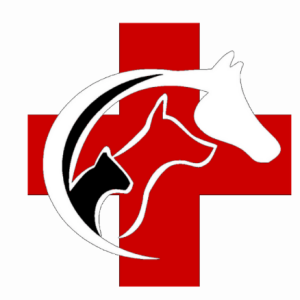
Animal Emergency Certification Courses for Registered Veterinary Technicians
LIVE VIRTUAL and ON-DEMAND RACE Approved CE CLASSES
Live Zoom Classes combine lecture, Q&A sessions, and interactive hands-on portions with feedback from the instructor. Instructors are credentialed veterinary technicians and classes offer not only RACE approved CEU but certification in animal CPR, First Aid, and emergency response. We teach the most current method of animal CPR endorsed by the veterinary industry.
ON-DEMAND TRAINING
All of our animal emergency certification course are also offered on-demand which are asynchronous, therefore there are no live components. Participants can complete the course at their own pace. Each course contains a variety of assigned readings, activities, training videos and quizzes.
Three CE credits per course are available for members of the OAVT
Courses are $89.95 each
For more information, and the schedule – https://petemergencyinternational.com/, or https://petemergencyinternational.com/product-category/virtual-live/
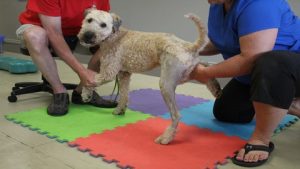
This course is designed for Veterinarians, Registered Veterinary Technicians, Veterinary Assistants, and Physiotherapists working in Animal Rehabilitation.
Rehabilitation is fairly new to the veterinary world, and a significant number of canine patients are not receiving adequate post-operative rehabilitation. Most veterinary clinics and clients do not have access to animal rehab professionals, so this course is the next best thing!
This course will take you through the phases of healing, the principles of building a rehab program, how to use a laser for the best post-operative outcomes and an easy to follow, step-by-step 12 week exercise program. We even include owner handouts and a Pre-Op Guide to put your own logo on.
This course can be done at any time, at your own pace. There is no start date or end date.
Improve patient outcomes and clinic incomes by creating your own Post-Op CCL program.
Learning Objectives:
Understand the different phases of healing and how rehab principles apply in each phase
Learn common acupuncture points to use with your laser to improve patient outcomes
Create a Pre-Op Guide for owners to help prepare the home and perform Passive Range of Motion and Massage
Follow a 12-week exercise program which includes concentric, eccentric and isometric exercises, proprioception and balance training and strength and power exercises
Learn how to implement a rehab program into your own practice to improve surgical outcomes, reduce the percentage of contra-lateral CCL rupture, and create rehab income

Practical approach to the management of acute hemorrhaging diarrhea syndrome
There is more than just a name change to consider when it comes to acute hemorrhagic diarrhea syndrome (AHDS), the syndrome formerly known as hemorrhagic gastroenteritis (HE). This lecture will provide a case-based overview to highlight recent developments in the diagnosis and management of dogs with AHDS. Practical dietary and medical management tips for successful case outcomes that every practitioner should keep in mind will also be highlighted.
Presented by Dr. Stanley L. Marks
https://www.communivet.com/en/ca/education/webcasts/practical-approach-to-the-management-of-ahds
OAVT CE: 1 credit

Let’s face it, our vaccination protocols have been hard to follow due to the havoc Covid‐19 has created in our ability to see our patients on a regular basis and to ensure their vaccinations are up‐to‐date and aligned with their lifestyle risks and regional risks. Our panel of Canadian experts is here to help and provide guidance so you can better prepare for the upcoming spring vaccination season.


Join us at this recorded webinar, to make significant and long-lasting health impacts on your canine patients and your clients.
Leptospirosis has received increased attention regarding its emergence and spread in dogs throughout Canada. This case-based talk will review the diagnosis, treatment, and prevention of this often-fatal zoonotic disease. During this webcast, Drs. Michelle Evason and Jason Stull will highlight recent research into the epidemiology of this disease in Canada to allow for local risk assessment, targeted prevention, veterinary awareness, and client education.
